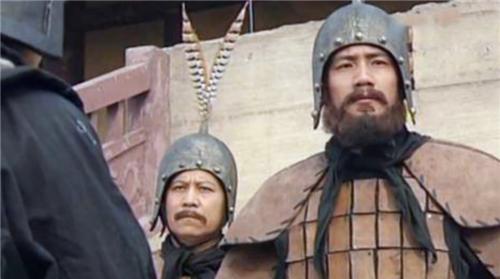Idioms are a major feature of China's traditional culture, showing the unique charm of Chinese character language, an idiom also represents a story or allusion, today let's talk about an idiom related to the famous general Hua Yuan during the Spring and Autumn Period.

Hua Yuan was the fifth grandson of Duke Dai of Song, the son of The Royal Affair of Watson, when Song Zhaogong reigned, Hua Yuan was already the grand master (official name) of the State of Song in the Spring and Autumn Period, in 611 BC, the State of Song was in a famine, Song Zhaogong's younger brother Gongzi Bao took out all the grain, gave it to the poor, and sent gifts to the elderly over the age of seventy, and Gongzi Bao took the opportunity to win the hearts and minds of the people.
Moreover, Gongzi Bao was handsome and handsome, and Wang Ji wanted to be close to Gongzi Bao, even if Gongzi Bao did not agree, she still helped Gongzi Bao to give favors to the people of the country, and relied on Hua Yuan's recommendation to let Gongzi Bao serve as the right teacher.
In the same year, a coup d'état occurred in the Song dynasty, and Song Zhaogong was killed, and Hua Yuan and others supported Gongzi Bao as the new king, that is, Song Wengong. Hua Yuan has played many roles in his life, including politicians, diplomats, military experts, assassins, hostages, and generals, but such a figure has been planted in the hands of a coachman.
In the fourth year of Song Wengong (607 BC), Zheng Guo sent troops to attack the Song Kingdom, Song Wengong sent Hua Yuan as the commander, leading troops to resist, fighting is a hard thing, before resisting the Zheng army, Hua Yuan in order to encourage morale, so kill sheep to reward the soldiers, everyone has a share, but because there are too many things to be busy, or because the coachman Yang Shu is not very conspicuous, in short, the sheep chop did not get any sheep soup, mutton.
Yang Zhuo thought that Hua Yuan looked down on himself and targeted himself, so he resented him, but Yang Zhuo did not immediately run to Hua Yuan to make a fuss, but pretended to wait for the two armies to start a war.
On the battlefield, Hua Yuan stood in the coachman, always paying attention to the situation, but not long after the Song army and Zheng Jun fought, Yang Zhuo, as the coachman, pulled the chariot carrying Hua Yuan directly to the enemy camp, and said, "The sheep of the past, the son is the government, today's affairs, I am the government." ”
That is to say: yesterday's sheep is your master, and today's war is my master. Hua Yuan was thus captured alive, the dragons were leaderless, and the Song army was defeated.
But Hua Yuan was a talented man, so Song Wengong was willing to redeem Hua Yuan with a hundred chariots and four hundred beautiful horses, but the chariots and horses sent by the Song army had not all been transported to zheng guo, and Hua Yuan had already fled back to the Song kingdom by himself.
Historians have written this historical event into the annals of history as a typical example of harming the public with private interests, and the evaluation of Yang Zhuo in the history books is: "With its private regrets, the country was defeated and the people were destroyed." And thus gave birth to an idiom that became a household name.
That is, "each for its own affairs", which means that each of them acts according to their own ideas, does not cooperate with each other, and does not consider the overall situation in the metaphor, and each sets it up.
When Hua Yuan divided the sheep, he forgot that although the coachman Yang Zhuo was wrong, but the sheep did not care about the overall situation, and transported his own commander to the enemy camp, it was a treasonous act, so everyone regarded him as a "villain", and he responded to that sentence, it was better to offend the gentleman than to offend the villain, and once he offended the villain, the villain really killed people.
However, Hua Yuan's ending is "great difficulty does not die, there will be a blessing", the history of Song Zhaogong, Song Wengong, Song Gonggong, Song Pinggong four kings, can be called "four dynasties elders", a high time, but also did not cut off their own future because of the coachman.